ICTs and Older Persons: Responsible use of the cyberspace: tips and hints for Seniors
EC Medici Framework
Session 186
ICT is stimulating changes in the way most people earn their incomes, varying the balance between our roles as consumers and producers, changing the way we educate succeeding generations and train ourselves, changing the fruition of the world’s cultural heritage, transforming the delivery of health care, altering the way we govern ourselves, changing the way we form communities, varying the way we obtain and communicate information, contributing to bridging some cultural or physical gaps, modifying patterns of activity among the elderly and perhaps contributing to a greener world.
This workshop aims to provide seniors with a general framework of reference regarding the benefits and risks associated with the use of new technologies and in particular the Internet. A panel of distinguished speakers will explore different key topics ranging between cybersecurity, privacy and ethics.
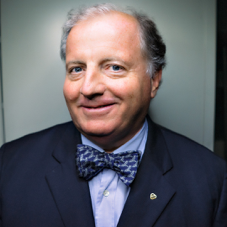
Alfredo M. Ronchi – expert/advisor in e-Services, active member of the WSIS since 2003, Secretary General of the MEDICI Framework of Cooperation, and MEDICI delegate at UNESCO IFAP. Head of the JRC S2D2 (ICTs 4 Safety & Security). Mr Ronchi is member of the following Boards of Directors: Global Forum, World Summit Award, European Youth Award, European Education New Society Association, Fondazione Italiana Nuove Comunicazioni. Member of the Keio University NoE. Ronchi is appointed as an expert by: European Commission, Council of Europe, Italian Association of Banks, National Research Council. National and international project coordinator. He cooperated as organizer or programme chair in W3C, ACM, IEEE conferences. Author/contributor of more than 400 papers and various books on: e-Services e-Culture, IPR, e-Government, e-Health, and e-Learning. Mr. Ronchi is a professor – Engineering Faculty, Politecnico di Milano.
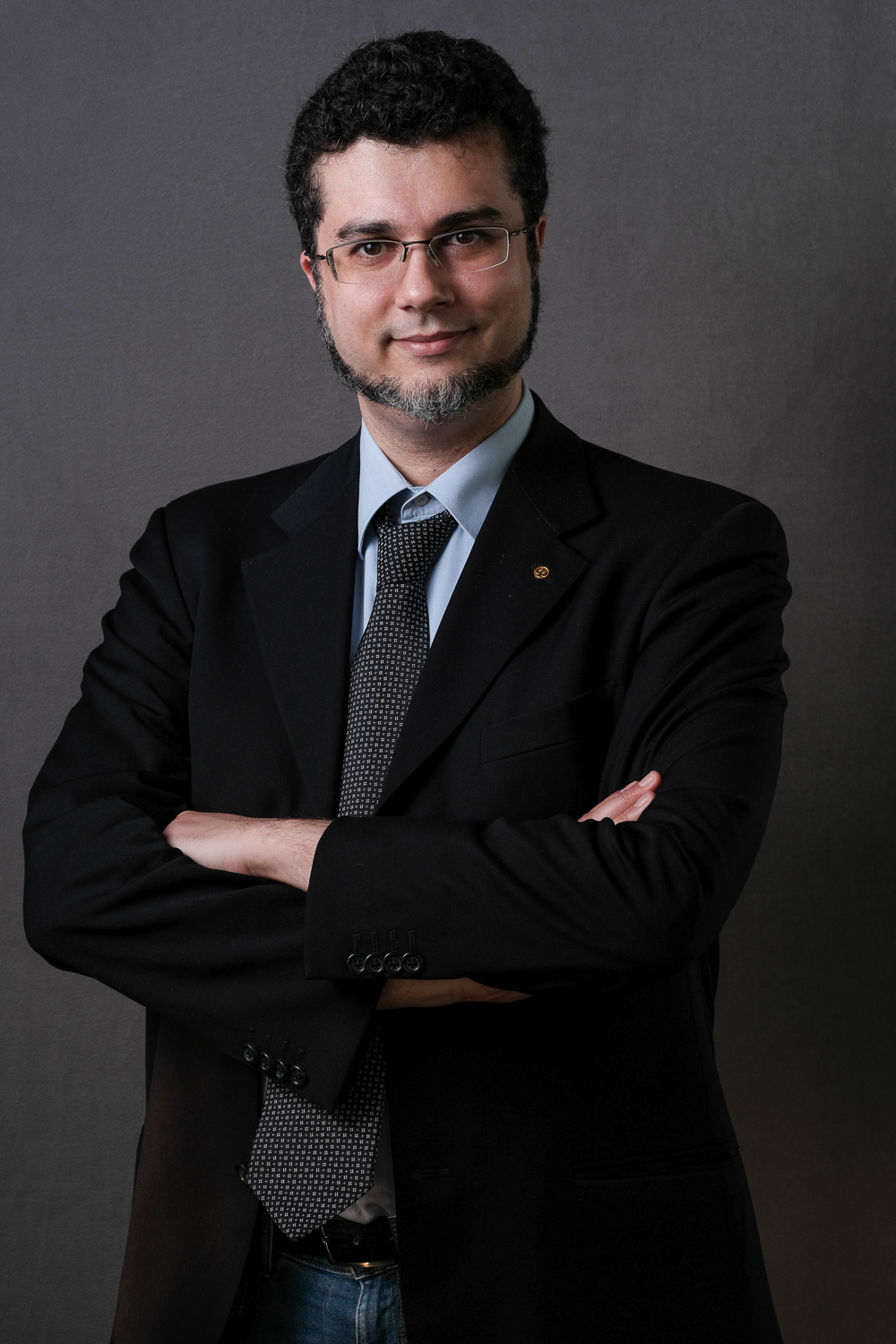
Stefano Zanero
- received a PhD in Computer Engineering from Politecnico di Milano, where he is currently an associate professor with the Dipartimento di Elettronica, Informazione e Bioingegneria. His research focuses on malware analysis, cyberphysical security, and cybersecurity in general. Besides teaching Advanced Cybersecurity Topics” and “Computer Forensics and Cybercrime” at Politecnico, he has an extensive speaking and training experience in Italy and abroad. He co-authored over 90 scientific papers and books. He is a Senior Member of the IEEE and sits in the Board of Governors of the IEEE Computer Society; he is a lifetime senior member of the ACM and has been named a Fellow of ISSA (Information System Security Association). Stefano is also a co-founder and chairman of Secure Network, a leading security assessment firm and a co-founder of BankSealer, a startup in the FinTech sector that addresses fraud detection through machine learning techniques.
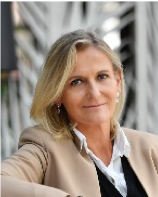
Dr Astrid Stuckelberger PD PhD - has over the years become an internationally recognized expert in ageing, innovation and global public health issues. Since over 20 years as researcher and senior lecturer at the Faculty of Medicine of the University of Geneva, she is invited professor in different European Universities. She is co-founder with WHO and current President of the Geneva International Network on Ageing (GINA), former chair of the NGO Committee on Ageing at the United Nations where she represents an academic NGO since 2002 (SPSSI). Within the United Nations, she works with WHO in fields such as ageing, mental health, social determinants, international health regulations (pandemics) and ethics. At the European level, beside conducting research projects, she acts as an EU expert on ICT and Innovation for seniors (i.e. EGE, AAL), in particular on the ethical and regulatory aspects. She was awarded by the United Nations Secretary-General for her achievement during the 1999 UN International Year of Older Persons. Author of a dozen books and more than 180 scientific articles, policy papers, governmental, European Commission or UN reports.
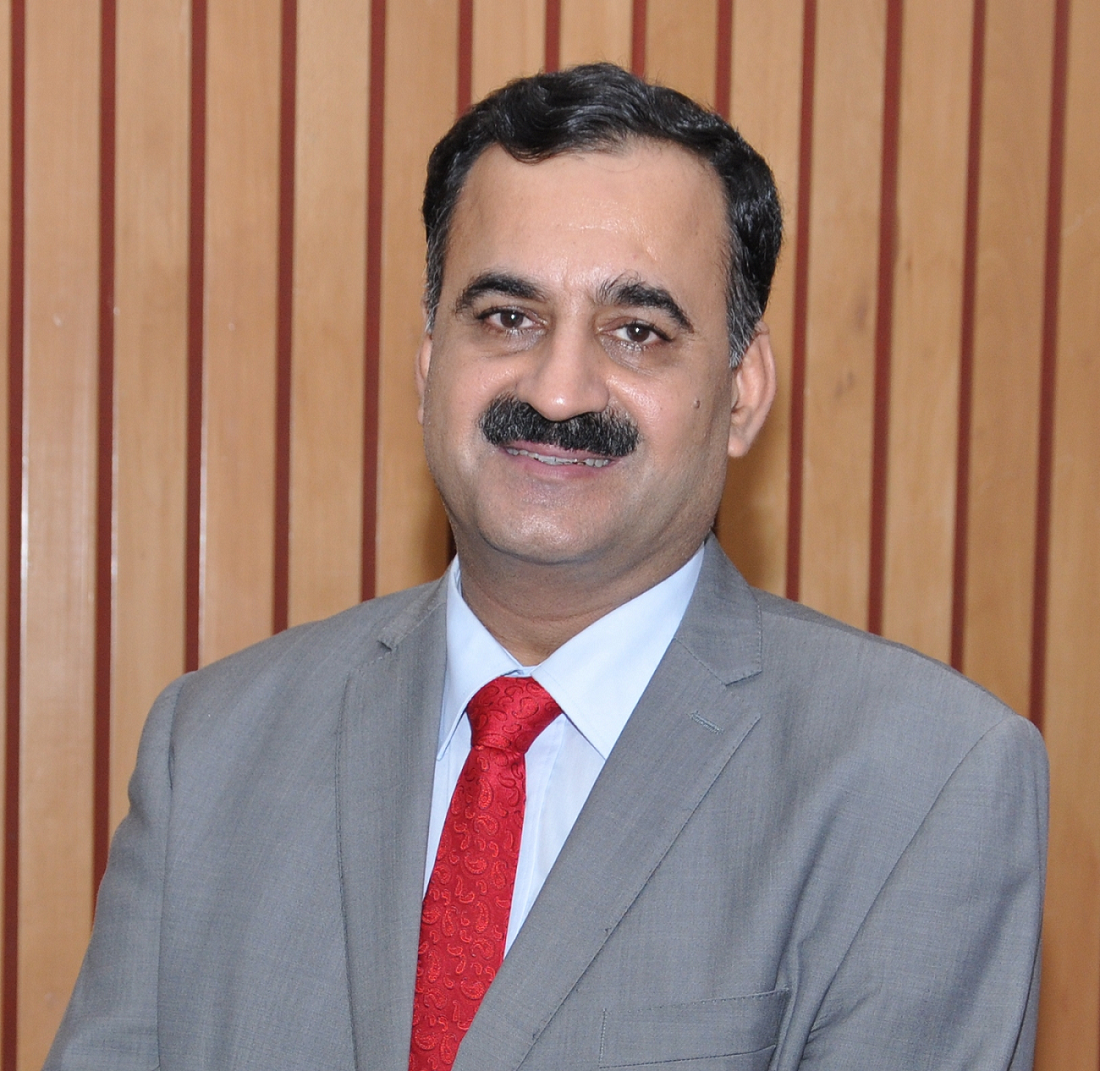
Pavan Duggal – President & Founder ICC, Advocate at the Supreme Court - While a practicing Advocate, Supreme Court of India, Dr. Pavan Duggal has made an immense impact with an international reputation as an Expert and Authority on Cyber Law, Cyber Security Law, Artificial Intelligence Law & E-commerce law.Dr. Duggal has been acknowledged as one of the top 4 Cyber Lawyers around the world. WDD [World Domain Day] recognizes him as one of the top 10 Cyber Lawyers around the world.Dr. Pavan Duggal, is the Founder & Chairman of International Commission on Cyber Security Law. He is also the President of Cyberlaws.Net and has been working in the pioneering area of Cyber Law, Cyber Security Law & Mobile Law. Pavan is also heading the Artificial Intelligence Law Hub and Blockchain Law Epicentre. His empanelment as a consultant to UNCTAD and UNESCAP on Cyber Law and Cyber Crime respectively, membership of the AFACT Legal Working Group of the UN / CEFAT, consulting as an expert with the Council Of Europe on Cyber Crime, inclusion in the Board of Experts of European Commission’s Dr. E-commerce and his work as an expert authority on a Cyber Law primer for E-ASEAN Task Force and as a reviewer for Asian Development Bank speaks volumes of his worldwide acceptance as an authority. Pavan is the President of Cyberlaw Asia, Asia’s pioneering organization committed to the passing of dynamic cyber laws in the Asian continent. Dr Duggal is also a member of the WIPO Arbitration and Mediation Center Panel of Neutrals. Dr.Duggal is a regular on the lecture circuit. He has spoken at over 2000 Conferences, Seminars and Workshops in the last seven years, and has lectured extensively in select Law Colleges. As a Writer, he has made his mark with 130 Books on various aspects of the law in the last 20 years. He has contributed a continuing weekly column on diverse aspects of the law, titled ‘Brief Cases’ to the Economic Times, for the last seven years. Dr. Pavan Duggal, in association with International Telecommunications Union, conducted two Training cum Sensitization Programmes for the elected Judges and Officers of the International Court of Justice (ICJ) at The Hague, Netherlands on 23rd May, 2019.Pavan conducts 21 different online courses at Cyberlaw University, whichhave been subscribed by more than 22,500 students from 168 countries, speaking 48 national langauges with excellent ratings. More about Dr. Pavan Duggal is available at www.pavanduggal.com/ and http://www.linkedin.com/in/pavanduggal.
Hans-Wilhelm Dünn – President Cyber Security Council - holds a diploma in administrative sciences from the University in Potsdam. From 2007-2009, he worked as a Personal Assistant to the Minister’s Office of Economic Affairs and the Deputy Minister-President of the Federal State of Brandenburg, who was also Chairman of the German Federal Network Agency. From 2009 – 2010, he was a board member of the Potsdam municipal energy supplier (Energie and Wasser Potsdam GmbH). From 2010-2012, he was Managing Director of Security and Safety in Brandenburg e.V. In addition, from 2011 – 2014, he was also board member of the Potsdam public transport (VIP Verkehrsbetrieb Potsdam GmbH). Furthermore, Hans-Wilhelm Dünn was a board member at two hospital corporations (Klinikum Ernst von Bergmann GmbH, Lausitz Klinik Forst GmbH) from 2014 - 2019. As Co-founder and President – previously Vice-president and General Secretary – of the Cyber-Security Council Germany e.V, he is chairman of the association’s Energy Hub and member of the eHealth Hub and consults operators of critical infrastructure about cybersecurity. He also initiated the association’s eHealth and attribution hubs, as well as a new initiative to give trust ratings to start-ups. He shares his expertise and experience at high ranking conferences and events and is often a contact person for TV channels or a guest author for several magazines, journals and scientific publications such as the Yearly Book on European Integration.
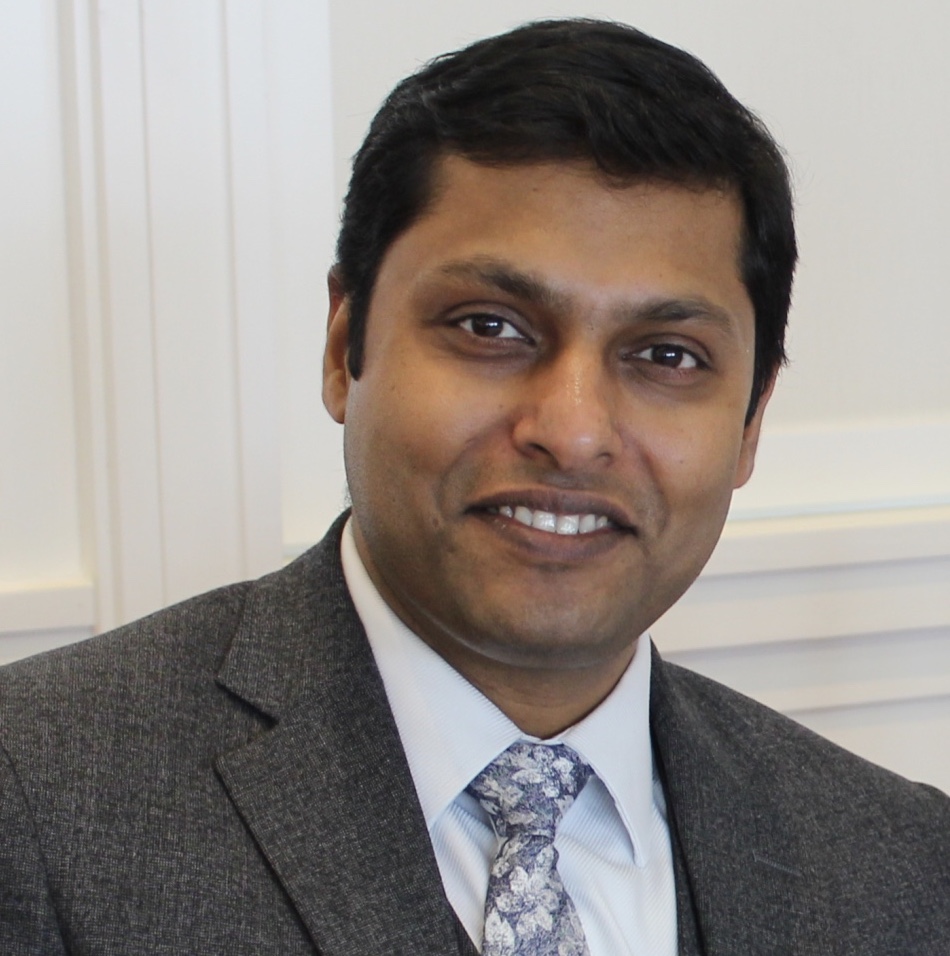
Valmiki Mukherjee, CISSP, CRISC, Founder & Chairman, Cyber Future Foundation, Managing Director, EY - Valmiki Mukherjee is a preeminent and globally renowned Risk Management and Cyber Security executive leader with a distinguished career in developing, building and leading the cybersecurity transformation journey for many businesses, public agencies, nations and their civil societies around the world. Valmiki in his career as a cybersecurity professional and multifaceted leader has built global platforms for leadership and leveraged it to make meaningful impact in collaboration with executive leaders from different domains to build and delivery comprehensive and outcome-oriented programs. He has supported his holistic cybersecurity thinking into action by sponsoring projects, programs and initiatives both at his day job at EY as well as his nonprofit Cyber Future Foundation. Valmiki is a proven leader and visionary with exceptional ability to build long-term relationships with industry across sectors, and internal stakeholders by establishing a high level of confidence, credibility and trust in advising and implementing solutions. In the industry and cyber security community, Valmiki has established himself to be an impactful thought leader with a keen understanding of business priorities and economic impacts. He has demonstrated expertise in rapidly enabling organizations with key strategy, policy, and technology risk management solutions. In 2015 Valmiki founded the Cyber Future Foundation which is a global leadership platform for enabling a trusted cyberspace through multi-stakeholder collaboration. He is the convener of the prestigious Cyber Future Dialogue in Davos and co-chair of the Cyber Future Summit in Dallas. In 2020 Valmiki founded the CFF Society of Mentors. Valmiki currently works as a Managing Director at EY, serving as the Americas Cybersecurity Leader for Critical Infrastructure Sector of Oil & Gas, Mining & Metals.Valmiki is a Certified Information Systems Security Professional (CISSP), Certified on Risk in Information Security Control (CRISC)
-
 C1. The role of governments and all stakeholders in the promotion of ICTs for development
C1. The role of governments and all stakeholders in the promotion of ICTs for development
-
 C3. Access to information and knowledge
C3. Access to information and knowledge
-
 C4. Capacity building
C4. Capacity building
-
 C5. Building confidence and security in use of ICTs
C5. Building confidence and security in use of ICTs
-
 C10. Ethical dimensions of the Information Society
C10. Ethical dimensions of the Information Society
Having read many times the different documents, vision beyond, SDGs, Matrix, UN related docs, it seems they suggest, among other topics, a holistic approach to risk assessment and management including of course education and capacity building in this sector. Almost all the SDGs and related WSIS WG matrix include the themes security, safety, disaster management and recovery.
Specifically:
SDG 1 END POVERTY IN ALL ITS FORMS EVERYWHERE
C5
SDG 2 END HUNGER, ACHIEVE FOOD SECURITY AND IMPROVED NUTRITION AND PROMOTE SUSTAINABLE AGRICULTURE
food security, slow onset disasters (drought, global warming, chemical products, etc)
SGD 3 ENSURE HEALTHY LIVES AND PROMOTE WELL-BEING FOR ALL AT ALL AGES
3.d Strengthen the capacity of all countries, in particular developing countries, for early warning, risk reduction and management of national and global health risks
ICTs for Safety & Security
SDG 4 ENSURE INCLUSIVE AND EQUITABLE QUALITY EDUCATION AND PROMOTE LIFELONG LEARNING OPPORTUNITIES FOR ALL
4.4 By 2030, substantially increase the number of youth and adults who have relevant skills, including technical and vocational skills, for employment, decent jobs and entrepreneurship
skills and new jobs C5
SDG 5 ACHIEVE GENDER EQUALITY AND EMPOWER ALL WOMEN AND GIRLS
5.b Enhance the use of enabling technology, in particular information and communications technology, to promote the empowerment of women
eEmpowerment, eInclusion, ICTs for Safety
SDG 6 ENSURE AVAILABILITY AND SUSTAINABLE MANAGEMENT OF WATER AND SANITATION FOR ALL
6.a By 2030, expand international cooperation and capacity-building support to developing countries in water- and sanitation-related activities and programmes, including water harvesting, desalination, water efficiency, wastewater treatment, recycling and reuse technologies
Water Security, Water sources Map
SDG 7 ENSURE ACCESS TO AFFORDABLE, RELIABLE, SUSTAINABLE AND MODERN ENERGY FOR ALL
7.1 By 2030, ensure universal access to affordable, reliable and modern energy services
7.a By 2030, enhance international cooperation to facilitate access to clean energy research and technology, including renewable energy, energy efficiency and advanced and cleaner fossil-fuel technology, and promote investment in energy infrastructure and clean energy technology
7.b By 2030, expand infrastructure and upgrade technology for supplying modern and sustainable energy services for all in developing countries, in particular least developed countries, small island developing States, and land-locked developing countries, in accordance with their respective programmes of support education
Power Grids, Micro generation, Green Energy, etc.
C5, critical infrastructure resilience, etc. etc.
SDG 8 PROMOTE SUSTAINED, INCLUSIVE AND SUSTAINABLE ECONOMIC GROWTH, FULL AND PRODUCTIVE EMPLOYMENT AND DECENT WORK FOR ALL
8.2 Achieve higher levels of economic productivity through diversification, technological upgrading and innovation, including through a focus on high-value added and labour- intensive sectors
8.3 Promote development-oriented policies that support productive activities, decent job creation, entrepreneurship, creativity and innovation, and encourage the formalization and growth of micro-, small- and medium-sized enterprises, including through access to financial services
C5 ICTs for safety & security
SDG 9 BUILD RESILIENT INFRASTRUCTURE, PROMOTE INCLUSIVE AND SUSTAINABLE INDUSTRIALIZATION AND FOSTER INNOVATION
9.1 Develop quality, reliable, sustainable and resilient infrastructure, including regional and trans-border infrastructure, to support economic development and human well-being, with a focus on affordable and equitable access for all
9.a Facilitate sustainable and resilient infrastructure development in developing countries through enhanced financial, technological and technical support to African countries, least developed countries, landlocked developing countries and small island developing States
9.c Significantly increase access to information and communications technology and strive to provide universal and affordable access to the Internet in least developed countries by 2020
This SDG (9) is directly connected with point 2 WSIS Forum 2019 High-level Segment and the identification of cyber warfare scenarios.
SDG 10 REDUCE INEQUALITY WITHIN AND AMONG COUNTRIES
SDG 11 MAKE CITIES AND HUMAN SETTLEMENTS INCLUSIVE, SAFE, RESILIENT AND SUSTAINABLE
11.3 By 2030, enhance inclusive and sustainable urbanization and capacity for participatory, integrated and sustainable human settlement planning and management in all countries
11.4 Strengthen e orts to protect and safeguard the world’s cultural and natural heritage
11.5 By 2030, significantly reduce the number of deaths and the number of people affected and decrease by [x] per cent the economic losses relative to gross domestic product caused by disasters, including water-related disasters, with a focus on protecting the poor and people in vulnerable situations
11.b By 2020, substantially increase the number of cities and human settlements adopting and implementing integrated policies and plans towards inclusion, resource efficiency, mitigation and adaptation to climate change, resilience to disasters, and develop and implement, in line with the Sendai Framework for Disaster Risk Reduction 2015-2030, holistic disaster risk management at all levels
S2D12
SDG 12 ENSURE SUSTAINABLE CONSUMPTION AND PRODUCTION PATTERNS
12.8 By 2030, ensure that people everywhere have the relevant information and awareness for sustainable development and lifestyles in harmony with nature
12.a Support developing countries to strengthen their scientific and technological capacity to move towards more sustainable patterns of consumption and production
12.b Develop and implement tools to monitor sustainable development impacts for sustainable tourism that creates jobs and promotes local culture and products
SDG 13 TAKE URGENT ACTION TO COMBAT CLIMATE CHANGE AND ITS IMPACTS
13.1 Strengthen resilience and adaptive capacity to climate-related hazards and natural disasters in all countries
13.3 Improve education, awareness-raising and human and institutional capacity on climate change mitigation, adaptation, impact reduction and early warning
13.b Promote mechanisms for raising capacity for effective climate change-related planning and management in least developed countries, including focusing on women, youth and local and marginalized communities
SDG 14 CONSERVE AND SUSTAINABLY USE THE OCEANS, SEAS AND MARINE RESOURCES FOR SUSTAINABLE DEVELOPMENT
SDG 15 PROTECT, RESTORE AND PROMOTE SUSTAINABLE USE OF TERRESTRIAL ECOSYSTEMS, SUSTAINABLY MANAGE FORESTS, COMBAT DESERTIFICATION, AND HALT AND REVERSE LAND DEGRADATION AND HALT BIODIVERSITY LOSS
SDG 16 PROMOTE PEACEFUL AND INCLUSIVE SOCIETIES FOR SUSTAINABLE DEVELOPMENT, PROVIDE ACCESS TO JUSTICE FOR ALL AND BUILD EFFECTIVE, ACCOUNTABLE AND INCLUSIVE INSTITUTIONS AT ALL LEVELS
16.2 End abuse, exploitation, trafficking and all forms of violence against and torture of children
16.5 Substantially reduce corruption and bribery in all their forms
16.10 Ensure public access to information and protect fundamental freedoms, in accordance with national legislation and international agreements
16.a Strengthen relevant national institutions, including through international cooperation, for building capacity at all levels, in particular in developing countries, to prevent violence and combat terrorism and crime
SDG 17 STRENGTHEN THE MEANS OF IMPLEMENTATION AND REVITALIZE THE GLOBAL PARTNERSHIP FOR SUSTAINABLE DEVELOPMENT
17.8 Fully operationalize the technology bank and science, technology and innovation capacity-building mechanism for least developed countries by 2017 and enhance the use of enabling technology, in particular information and communications technology
17.16 Enhance the global partnership for sustainable development, complemented by multi-stakeholder partnerships that mobilize and share knowledge, expertise, technology and financial resources, to support the achievement of the sustainable development goals in all countries, in particular developing countries
17.17 Encourage and promote an active public, public-private and civil society partnerships, building on the experience and resourcing strategies of partnerships.
1) In the 15 years of implementation of WSIS Action lines, please identify the main challenges faced in the implementation of specific WSIS Action Lines.
Cybercrime, Cybersecurity, Ethics, Culture of Security, ICTs 4 Seniors, Proper use of ICT by millennials
2) Please suggest possible partnerships that might strengthen the implementation of WSIS till 2025 and beyond.
Strengthen the partnership with UNESCO IFAP adding humanities and ethics standpoint to WSIS action lines and activities.
Act as a reference point for ICTs for Safety & Security sector promoting research and knowledge sharing and transfer.
-
 Goal 1: End poverty in all its forms everywhere
Goal 1: End poverty in all its forms everywhere
-
 Goal 4: Ensure inclusive and equitable quality education and promote lifelong learning opportunities for all
Goal 4: Ensure inclusive and equitable quality education and promote lifelong learning opportunities for all
-
 Goal 5: Achieve gender equality and empower all women and girls
Goal 5: Achieve gender equality and empower all women and girls
-
 Goal 8: Promote inclusive and sustainable economic growth, employment and decent work for all
Goal 8: Promote inclusive and sustainable economic growth, employment and decent work for all
-
 Goal 10: Reduce inequality within and among countries
Goal 10: Reduce inequality within and among countries
-
 Goal 11: Make cities inclusive, safe, resilient and sustainable
Goal 11: Make cities inclusive, safe, resilient and sustainable
-
 Goal 17: Revitalize the global partnership for sustainable development
Goal 17: Revitalize the global partnership for sustainable development
.jpg)
.jpg)
.jpg)
.jpg)
.jpg)

